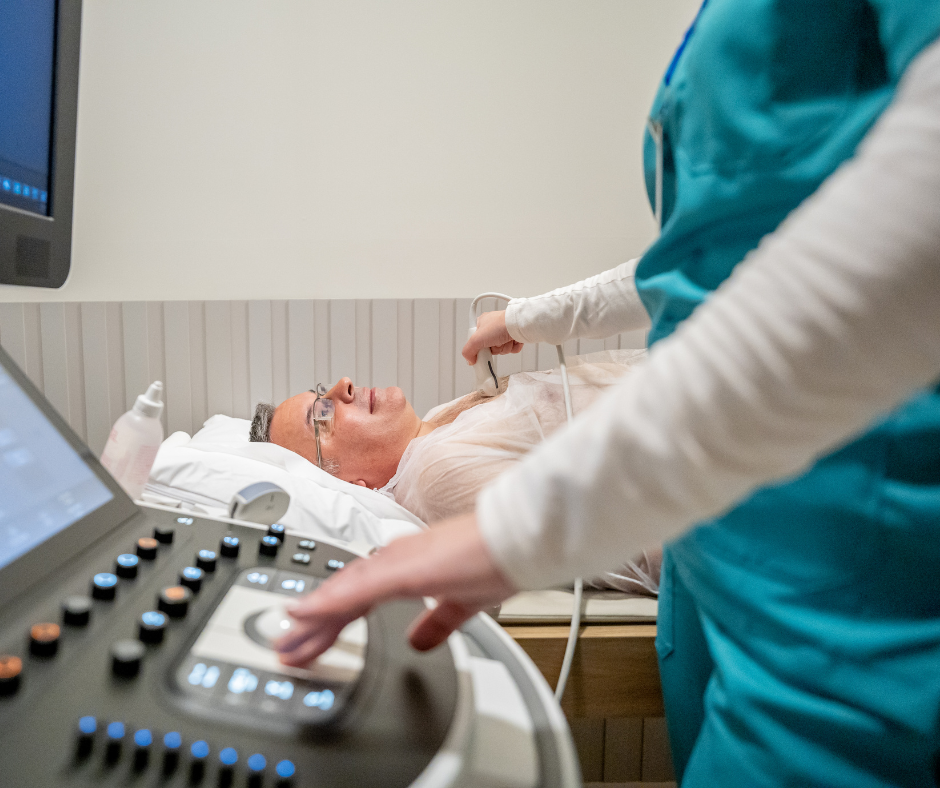Trial of AI-guided technology to detect heart disease in regional WA

A study harnessing artificial intelligence (AI) to perform potentially life-saving heart scans is being trialled at Merredin Health Service.
The WA Country Health Service has teamed up with the Baker Heart and Diabetes Institute and a number of the hospital sites across Australia on the AGILE-Echo project with the aim of improving the rate of early detection of heart failure and heart valve disease in rural and remote communities.
The 12-month study aims to show that a non-expert, guided by AI software can complete an echocardiogram – essentially an ultrasound of the heart – remotely, with the results of the scans made available to specialists via the cloud.
WA Country Health Service Cardiologist and study site investigator Dr Tony Mylius said he hoped the trial would show that with the aid of AI-guided technology, country doctors will be able to identify more heart disease and cardiac dysfunction than was otherwise possible.
“This is a fantastic opportunity for regional WA and for Wheatbelt communities in particular,” Dr Mylius said.
“We’re hoping that with the introduction of AI to the echocardiogram process, we can improve access to these tests for country cardiac patients and people who are most at risk.”
Baker Heart and Diabetes Institute Cardiologist and chief investigator Professor Tom Marwick said it was important to look for innovative solutions to provide important tests like an echocardiogram.
“Given this strategy has not been tried before in Australia or elsewhere, we need proof of concept to incorporate AI-based echocardiography in the health system,” Professor Marwick said.
WA Country Health Service Executive Director Wheatbelt Rachele Ferrari said that the organisation had a real focus on being at the forefront of new and emerging technologies to benefit country communities.
“We know that rural and remote communities carry a disproportionate burden of heart disease, with Aboriginal people and the elderly most affected,” Ms Ferrari said.
“This project gives our health service the opportunity to potentially detect these types of conditions early.”

